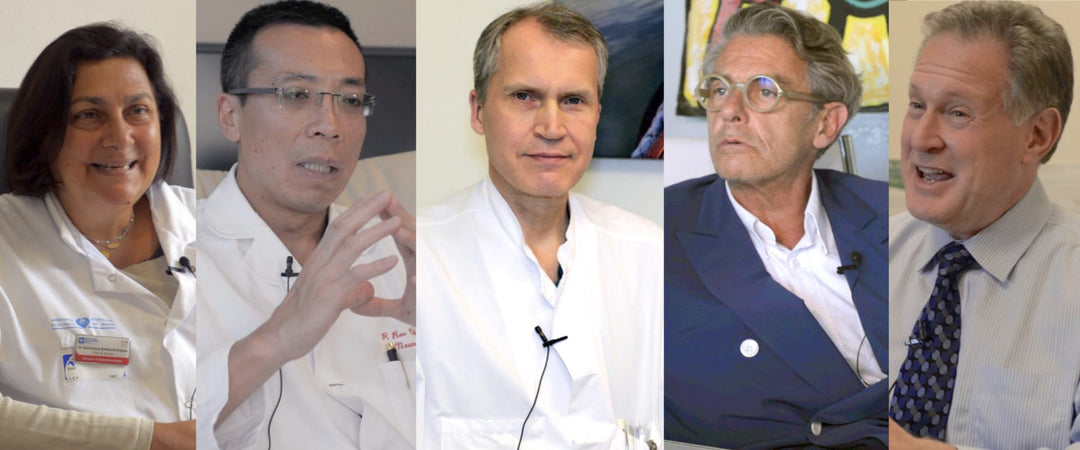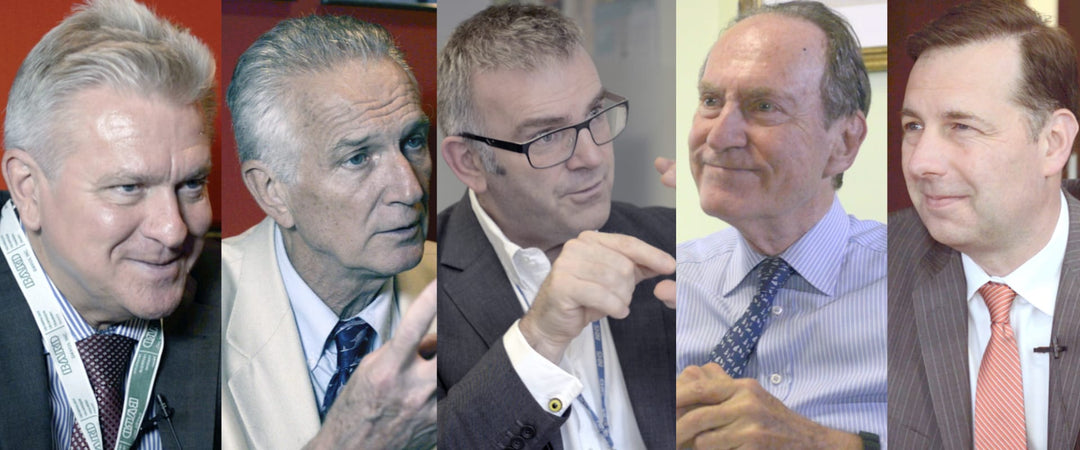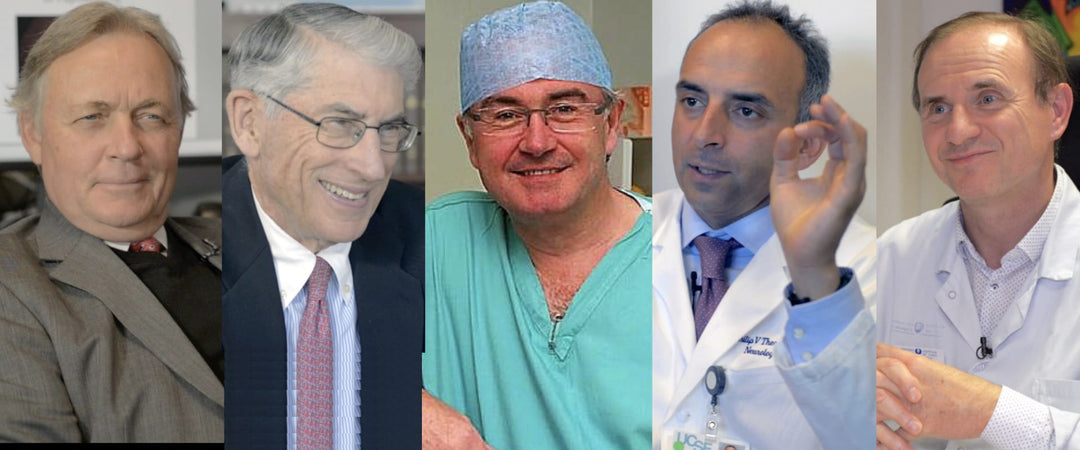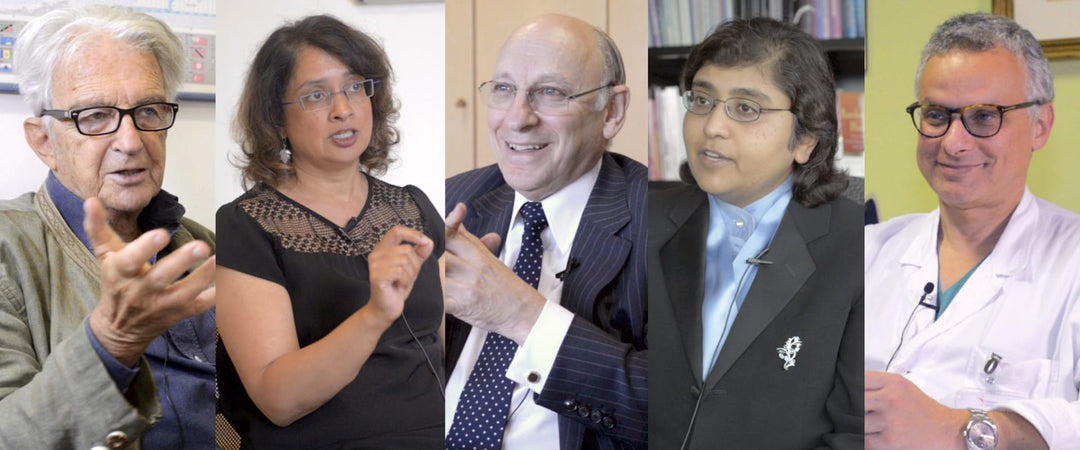1. Our Method: We find 3 to 10+ top experts who precisely match every nuance of your medical situation.
Many claim to identify top experts using one of three methods. All of them are wrong:
1. “Doctors Nominating the ‘Best’ Doctors”
- Highly subjective. Personal connections, reputation, and administrative titles influence these rankings more than actual expertise.
- Too general. This method ignores subspecialization—matching an expert’s precise focus with a patient’s specific case is critical.
2. Analyzing Large Insurance Databases of “Clinical Outcomes”
- Misleading data. These databases primarily track procedure success rates, often for surgeons.
- Example: If you seek expert advice on knee arthritis, the database may identify a surgeon with low complication rates for knee replacements—but that doesn’t mean they are the best expert to determine if you need surgery at all or explore alternatives.
- “When you’re a hammer, everything looks like a nail.” A knee surgeon may default to surgery, rather than considering non-surgical solutions.
- Specialty limitations: In many fields, such as neurosurgery, defining “excellent outcomes” is highly complex.
- Geographic bias: These databases typically cover only U.S. physicians, excluding top international experts.
3. Selecting Doctors Based on Availability for Video Consultations
- Artificially limits expert selection. The pool of experts shrinks drastically when filtering for those who have (1) time, (2) willingness, and (3) interpersonal skills for video calls.
- Fixed & narrow roster. Many video-based second opinion services rely on a small, pre-selected group of doctors.
- Top experts are often unavailable. Many world-class specialists simply don’t have time for patient calls, nor do they wish to engage in time-consuming video sessions.
- Language constraints: Some top-tier experts are not fluent in English, further reducing access to the best specialists for a given case.
All clinics, hospitals, and healthcare companies operate within a fixed network of doctors for patient consultations and treatments. This inherently limits your access to the best possible experts for your exact medical situation.
- In reality, you may never know if a more qualified expert exists elsewhere—because no one will tell you. Hospitals and clinics are territorial; they prioritize their own brand, business, and affiliated doctors. And understandably so.
- Furthermore, if you live in a country with restricted access to medical experts—such as Sweden, where the system is not a free market—you may face additional barriers to expert consultation and treatment.
We are different. We search the entire global network of leading academic medical experts to find specialists who perfectly match your medical needs.
Thanks to modern communication technology, these experts can provide remote medical opinions tailored to your situation.
If you require a doctor for treatment or surgery, we work with you to refine the search based on your geographic preferences and personal circumstances.
- However, we don’t just find one expert—we find multiple top specialists, so you have the power to choose the best doctor for your treatment.
We are confident that, no matter the condition, we can always succeed in finding the best possible experts for any medical challenge.
We are agnostic to the location or institutional affiliation of medical experts. The only factor that matters is how precisely their expertise aligns with your specific medical situation.
Our approach is simple: We identify experts who fit your case as precisely as a key fits a lock—ensuring that the right specialist can solve your medical challenge efficiently and with minimal friction.
We search the entire universe of academic physicians, worldwide.
- We analyze worldwide medical research articles and databases to find experts who are most active in research and innovation related to your specific diagnosis.
- Common diagnoses may have 100,000 to 500,000 published research articles, while rare diseases may have fewer than 100.
- We meticulously review the literature to select experts precisely aligned with your exact diagnosis, disease stage, and unique circumstances (e.g., co-morbidities, treatment preferences).
- Cutting-edge medical research is often presented at conferences before publication in journals.
- Abstracts, posters, speaker lists, and presentation titles provide crucial insights into specific diagnoses and treatment options.
- This information helps us pinpoint the best experts for any medical challenge.
- Physicians often have insider knowledge about their colleagues.
- Leading specialists may help identify top experts in other countries or continents.
- Trusted doctors can discreetly share valuable reputational insights, helping us steer away from suboptimal specialists. This kind of information is rarely made public.
- By leveraging these insights, we identify the most qualified experts worldwide to address your specific medical needs.
Consider a panel of three experts from the same specialty. There are three possible scenarios:
- Complete Agreement – All three experts confirm your diagnosis and treatment plan. This provides a strong validation that your current plan is on the right track.
- Partial Agreement – Two experts share the same view, while one has a dissenting opinion. This is a "Minority Report" scenario—something you want to be aware of, just as Tom Cruise's character sought out his own "Minority Report" in the namesake movie.
- Divergent Opinions – Each expert presents a different perspective on your diagnosis or treatment options. While rare, this situation signals a need for further diagnostic tests or a reassessment of your medical strategy.
For complex, multimodal treatments—such as surgery, radiotherapy, and chemotherapy—having two or three specialists for each treatment mode ensures a thorough, well-rounded review of your medical situation from every angle.
This precision-driven, unbiased approach guarantees that you receive the most informed and optimal medical guidance possible.
The experts we identify come from different clinics, regions, and often countries.
This diversity ensures that their insights are objective, well-rounded, and independent of regional treatment biases.
Even highly qualified experts may have divergent perspectives on your treatment options. They might:
- Weigh the pros and cons of the same treatment differently.
- Present distinct arguments for or against a particular approach.
Hearing all these perspectives is invaluable.
Understanding how to evaluate all available treatment options wisely is key to making the best medical decision.
We moderate these expert discussions, analyze their insights, and cross-reference all recommendations with peer-reviewed medical literature—ensuring you receive the most informed and evidence-based guidance possible.
Our services are purely informational and educational.
We help you to educate yourself about crucial aspects of your medical condition, and find the best medical experts in the world for your specific medical situation.
No “patient-doctor relationship” is established between our clients, us, and the medical experts we identify and engage to help you solve your medical challenge.
Only a specific medical clinic can establish a formal legal "patient-physician" relationship between a patient and a physician.
We are not a medical clinic.
However, our clients around the world find our services crucial in helping them navigate any medical challenge, anywhere in the world, and in the best possible way.
2. What "Best Doctor" Means in the Precision Medicine Era:
In the past, choosing the Head of a Department might have increased your chances of receiving the best treatment. That era is over.
There is no longer a single “best doctor” for an entire disease or organ.
- Medical advancements have divided every diagnosis into multiple subtypes, each with unique characteristics, treatment options, complications, and prognoses.
- Today, the "best doctor" depends on your specific diagnosis, subtype, and disease stage. These experts specialize in your exact condition, conducting cutting-edge research and leading clinical advancements.
To achieve the best possible outcome, you need experts with a deep interest and precise expertise in your specific case—not just a 'Professor of Organ X' or a 'Professor of Specialty Y,' whose focus on your diagnosis's specific stage and subgroup may not be deep enough to ensure the best outcome.
- Size and reputation don’t guarantee everything. No hospital—no matter how big or famous—has the best experts for every subtype of every disease.
- But hospitals won’t tell you that. Every clinic claims, "We are the best at treating you." That might be true for some cases, but certainly not for all medical situations.
- Medicine is big business. Referring patients to another hospital means losing revenue, so institutions keep patients within their network.
- Think of airlines: No airline will tell you their competitor offers a better route at a lower price. Hospitals operate the same way.
- That’s why large hospitals always claim they are "the best for everything you need"—even when they’re not.
Patients are often not referred to the best expert for their case. Here’s why:
- Administrators lack precision. They may not know—or care—how to match patients with the right physicians.
- Insurance and workload balancing. Administrators or insurers will often send you to any available doctor within a broadly relevant specialty, simply because they "accept new patients."
- The right expert may never hear about you. The perfect specialist for your condition may be too busy and won’t automatically learn about a tailor-made patient case.
- Prestige ≠ Precision. You may push to see a Head of Department or a famous hospital doctor (especially as a "VIP"), but they may not have subspecialty expertise in your exact diagnosis.
- Administrative burden dulls expertise. A high-ranking physician may have "rusty" clinical skills due to age, research commitments, or heavy management duties. Some are "research submarines"—surfacing for clinical duties just one or two months per year (and you’d never know).
- Hospitals operate in silos. Departments may not involve other specialists from the same hospital, even when collaboration could improve your care.
Read our founder's story to see how his mother initially missed the best expert for her lung tumor—despite that expert working in the same hospital.
Sometimes, one expert may have a dissenting opinion—what we call a "Minority Report," inspired by the Tom Cruise movie. And just like in the film, you always want to know if one exists.
Why a Minority Report Matters:
- A dissenting expert’s view may hold crucial insights for your treatment and prognosis.
- It can challenge default assumptions about your diagnosis and care plan.
- It may highlight the need for further tests to clarify your condition at a deeper level.
Diverse Expert Opinions Add Value:
✅ Different perspectives: Three highly qualified experts in the same specialty may interpret your case differently, emphasizing distinct nuances and treatment options.
✅ Consensus builds confidence: If all three agree on the diagnosis and treatment plan, it validates the approach—giving you added peace of mind.
Either way, a multi-expert review provides immense value by ensuring no critical detail is overlooked.
3. You Can Stay Anonymous—Even to Us.
We frequently work with clients anonymously for three key reasons:
- Stronger privacy protection.
- Reduced risk of bias based on name, location, or ethnicity.
- Avoiding "Medical VIP Syndrome"—a well-documented risk in healthcare.
- Many of our clients hold high-profile positions and value extra privacy.
- Expert opinions are unbiased when they are independent of a patient's name or status.
- "VIP Syndrome" can negatively impact medical decisions—but anonymity safeguards against it.
Privacy is built into our process:
- We never send your original medical reports—only a structured summary with key clinical data, formatted according to the standards used at top U.S. hospitals.
- Ethnicity is included only when clinically relevant (e.g., genetic conditions or medication response).
2. Imaging scans (MRI, CT) are stripped of personal data, using the same anonymization techniques as clinical trials.
3. For direct treatment referrals:
- We first consult experts without disclosing patient identity.
- Once a suitable treatment is confirmed, the client chooses whether to share personal details with the specialist.
5. We Work Fast—Using Messengers, Email, and Written Reports.
Asynchronous communication significantly enhances the quality of medical reviews. Here’s why:
✅ Gives you time to reflect.
- You can analyze expert opinions in detail, with relevant background information.
- Our reports include extensive links to research and review articles to help you ask better follow-up questions.
✅ Enables multiple expert iterations.
- We engage in several rounds of discussion with top experts to clarify, challenge, and cross-examine their perspectives.
- The result is a comprehensive, well-vetted written report.
✅ Maximizes expert efficiency.
- World-leading specialists can review cases more thoroughly and quickly when working asynchronously.
✅ Removes logistical barriers.
- Experts across different time zones can collaborate without delays.
- No need to coordinate live meetings across busy schedules.
✅ Facilitates multilingual communication.
- Leading experts may be more precise in writing than in fast-spoken English, even if they publish extensively in English.
- Patients and experts may have accents that make real-time conversation difficult.
- Live translation wastes time—but written reports ensure clarity.
Our original client reports are in English, but we provide translations into the client’s native language as needed.
Efficiency Matters: The experts reviewing your case are world leaders in their field.
They juggle multiple high-level responsibilities, including:
- Treating hundreds of patients.
- Overseeing dozens of clinical trials.
- Running large research laboratories.
- Delivering keynote talks at global conferences.
- Publishing 20–70 research papers per year.
- Editing high-impact medical journals.
- Managing significant administrative duties.
How We Optimize Expert Time & Insights
- Structured case summaries: We condense all relevant data into a concise, specialty-specific report with precise medical terminology and abbreviations.
- Efficient MD-to-MD communication: Experts respond in a structured, high-density format to maximize efficiency.
- Cross-referencing expert views: We compare, clarify, and refine insights from multiple specialists, ensuring a thorough, multi-angle review.
- Plain English translation for you: We translate technical expert opinions into clear, patient-friendly language.
- Added value: Our reports include background information and links to key medical studies for deeper understanding.
Bottom line: This method ensures that top global experts can efficiently review your case while giving you the most precise, actionable insights possible.
Our reports go beyond standard second opinions.
Instead of a brief 1–2 page summary, you receive a comprehensive, research-backed document that typically exceeds 10 pages.
What’s included:
- Expert panel insights: A detailed review of all expert opinions on your case.
- Background & supporting information: Context for each expert’s view, including reasoning and references.
- Relevant research links: Direct access to scientific literature for deeper understanding.
Why this matters:
- You have time to reflect. Study the report at your own pace and explore the included references.
- You can ask well-informed follow-up questions. Once you review the report, you may send us clarifications or additional inquiries.
- Further expert input is available. When needed, we consult the expert panel again to address your follow-up questions.
At first glance, video and audio calls may seem appealing. However, synchronous communication (real-time calls) comes with significant limitations:
- Limited expert access. Only one expert is available at a time, restricting multi-expert input on complex cases.
- Lower expert caliber and fit. Availability and scheduling become bottlenecks, making it harder to access the most qualified experts for your situation.
- Rushed follow-ups, less context. Calls don’t allow for detailed documentation or time to fully develop expert opinions.
- Inefficient for all parties. Real-time calls consume time and reduce depth of analysis and precision.
Most services overlook these drawbacks and promote calls as a default solution. But calls are only suitable for:
- Generalists and primary care physicians—who can provide general advice.
- Doctors already familiar with the patient—who see them in person regularly.
Why Asynchronous Communication Wins:
- Enables access to the world’s leading experts across time zones.
- Allows for deep, structured analysis rather than rushed conversations.
- Supports multilingual collaboration by eliminating verbal language barriers.
📌 Bottom line: When it comes to complex medical cases, asynchronous communication is the superior method for expert-driven precision.





